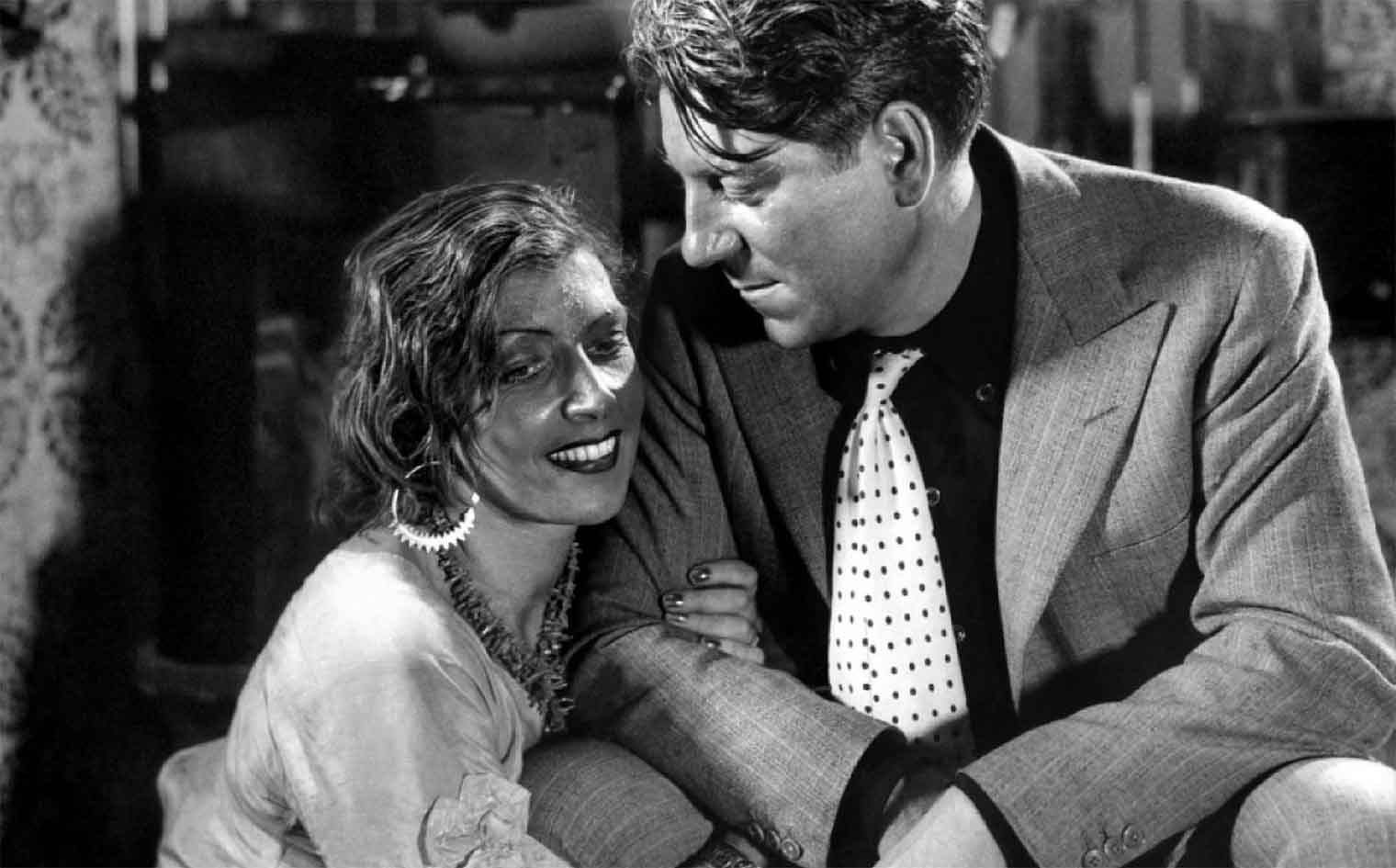PÉPÉ LE MOKO
7:20
Thursday, July 21
Starring Jean Gabin
(1937, Julien Duvivier) Trapped by a police raid while slumming in the native section of Algiers, playgirl Mireille Balin encounters the caïd of the labyrinthine casbah, Jean Gabin’s imprecably-dressed French crook-on-the-run Pépé Le Moko, casually removing an automatic from his pocket in search of cigarettes, then letting his gaze shift from her bracelets to her necklace to her eyes to her voraciously smiling mouth. Then, as they share wistful memories of the Paris Métro, it’s clear that if les flics can’t get Pépé, l’amour can. In scenes like the execution of a squealer (played by Pagnol star Charpin) to a scratchy gramophone record’s live accompaniment by its faded singer, (played by French music hall legend Fréhel), and Pépé’s documentary/fantasy walk into town, Duvivier transformed a pulp by ex-detective “Ashelbé” into a landmark of French poetic realism. As Graham Greene remarked in his contemporary review: “Perhaps there have been pictures as exciting on the ‘thriller’ level as this before, but I cannot remember one which has succeeded so admirably in raising the thriller to a poetic level” – no doubt influencing his later screenplay for The Third Man. Pépé’s influence was enormous, iconicizing Gabin as the doomed outsider and spawning two remakes – not to mention the Warner Bros. carton character Pépé Le Pew! In French, with English subtitles. 35mm. Approx. 95 mins.
Reviews
“SUPERB ENTERTAINEMENT! One of the most compelling of all the fatalistic French screen romances!”
– Pauline Kael
“Raises the thriller to a poetic level.”
– Graham Greene
“The plain-spoken and honestly factual account of a Parisian crook’s exile in the vicious and sordid Casbah of Algiers, that notorious area of corruption and native depravity from which he is eventually drawn to his doom by love for a woman. All the filthiness and vice of the Casbah are impressively shown in the film; there is no question at all about the ruthless wickedness of Pepe, and the woman who finally lures him into the open is obviously the mistress of another man. But the very frankness of the picture is the secret of its power and distinction, for the quality of the melodrama is immeasurably enhanced thereby and the pathos of the ironic ending is given more subtle point. Likewise the manner in which M. Duvivier directed it for sharp and unadorned reality imbues it with a firmness to be found only in films which call spades by their names.”
– Bosley Crowther, The New York Times

